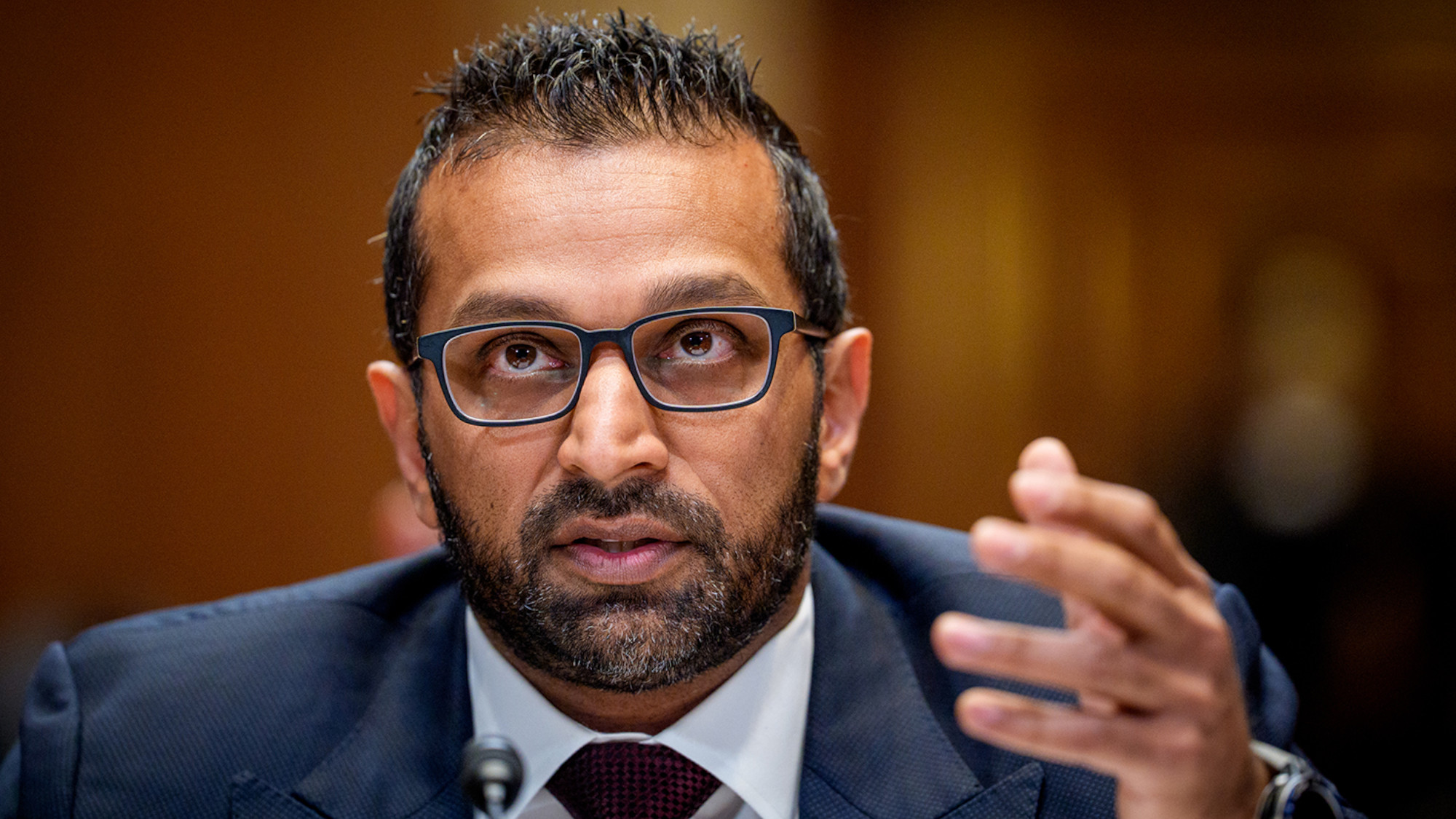Loyalty tests: The purge at the FBI
Kash Patel is conducting polygraph tests on FBI agents to weed out anyone speaking badly about him

A free daily email with the biggest news stories of the day – and the best features from TheWeek.com
You are now subscribed
Your newsletter sign-up was successful
FBI Director Kash Patel is determined to know who is talking trash about him, said Adam Goldman in The New York Times. In days past, the agency used lie-detector tests "to sniff out employees who might have betrayed their country," but under Patel, it's employing them to grill agents on whether they've said anything negative about him. It has even used the tests to hunt for the person who leaked Patel's request to be assigned a service weapon. This "alarming quest for fealty," FBI employees say, is "politically charged and highly inappropriate." Patel, who worked as an aide in the first Trump administration, was a leading critic of the agency before being confirmed to lead it—indeed, he claimed the agency was part of, in his words, a "Deep State plot" against President Trump, and he spread the conspiracy theory that Jan. 6 was a false-flag event. Since taking the helm in February, he has reassigned or forced out hundreds of experienced FBI officials, fueling a culture of fear and distrust.
Polygraph tests "are regarded as junk science, so it's a little insane" that the FBI still uses them at all, said Liz Wolfe in Reason. They detect stress, not lies, and they're not admissible in court. "But it's especially wild" for Patel to use them to determine loyalty to him personally. "Defending the laws of this country" is what these agents ought to be concerned with. Yet Patel has actually disbanded the squad investigating public corruption—because it was investigating wrongdoing by Trump administration figures. In fact, the FBI may be overdue for a house-cleaning, said Miranda Devine in the New York Post. A "bombshell new CIA review" shows that Deep State actors at the FBI in the late 2010s insisted on pushing highly suspect information to build "a false narrative of Trump-Russia collusion." That shows the agency was appallingly politicized.
Yet resorting to polygraphs is "old-style KGB stuff," said Tom Nichols in The Atlantic. Patel suspects agents "are laughing at him behind his back," and his solution amounts to "paranoid authoritarianism." Purging the FBI of veteran agents will only "corrode morale and potentially create more security risks" at a time when the country is in peril. Real spies and terrorists are out there "plotting the deaths of American citizens," and it should be the FBI's mission to find them. They're "waiting to be caught," but first, "Patel has to find out who snickered at him in the hallway. Priorities, after all."
The Week
Escape your echo chamber. Get the facts behind the news, plus analysis from multiple perspectives.

Sign up for The Week's Free Newsletters
From our morning news briefing to a weekly Good News Newsletter, get the best of The Week delivered directly to your inbox.
From our morning news briefing to a weekly Good News Newsletter, get the best of The Week delivered directly to your inbox.
A free daily email with the biggest news stories of the day – and the best features from TheWeek.com
-
 How the FCC’s ‘equal time’ rule works
How the FCC’s ‘equal time’ rule worksIn the Spotlight The law is at the heart of the Colbert-CBS conflict
-
 What is the endgame in the DHS shutdown?
What is the endgame in the DHS shutdown?Today’s Big Question Democrats want to rein in ICE’s immigration crackdown
-
 ‘Poor time management isn’t just an inconvenience’
‘Poor time management isn’t just an inconvenience’Instant Opinion Opinion, comment and editorials of the day
-
 How are Democrats turning DOJ lemons into partisan lemonade?
How are Democrats turning DOJ lemons into partisan lemonade?TODAY’S BIG QUESTION As the Trump administration continues to try — and fail — at indicting its political enemies, Democratic lawmakers have begun seizing the moment for themselves
-
 Democrats push for ICE accountability
Democrats push for ICE accountabilityFeature U.S. citizens shot and violently detained by immigration agents testify at Capitol Hill hearing
-
 Fulton County: A dress rehearsal for election theft?
Fulton County: A dress rehearsal for election theft?Feature Director of National Intelligence Tulsi Gabbard is Trump's de facto ‘voter fraud’ czar
-
 ‘Melania’: A film about nothing
‘Melania’: A film about nothingFeature Not telling all
-
 Greenland: The lasting damage of Trump’s tantrum
Greenland: The lasting damage of Trump’s tantrumFeature His desire for Greenland has seemingly faded away
-
 Minneapolis: The power of a boy’s photo
Minneapolis: The power of a boy’s photoFeature An image of Liam Conejo Ramos being detained lit up social media
-
 The price of forgiveness
The price of forgivenessFeature Trump’s unprecedented use of pardons has turned clemency into a big business.
-
 Reforming the House of Lords
Reforming the House of LordsThe Explainer Keir Starmer’s government regards reform of the House of Lords as ‘long overdue and essential’